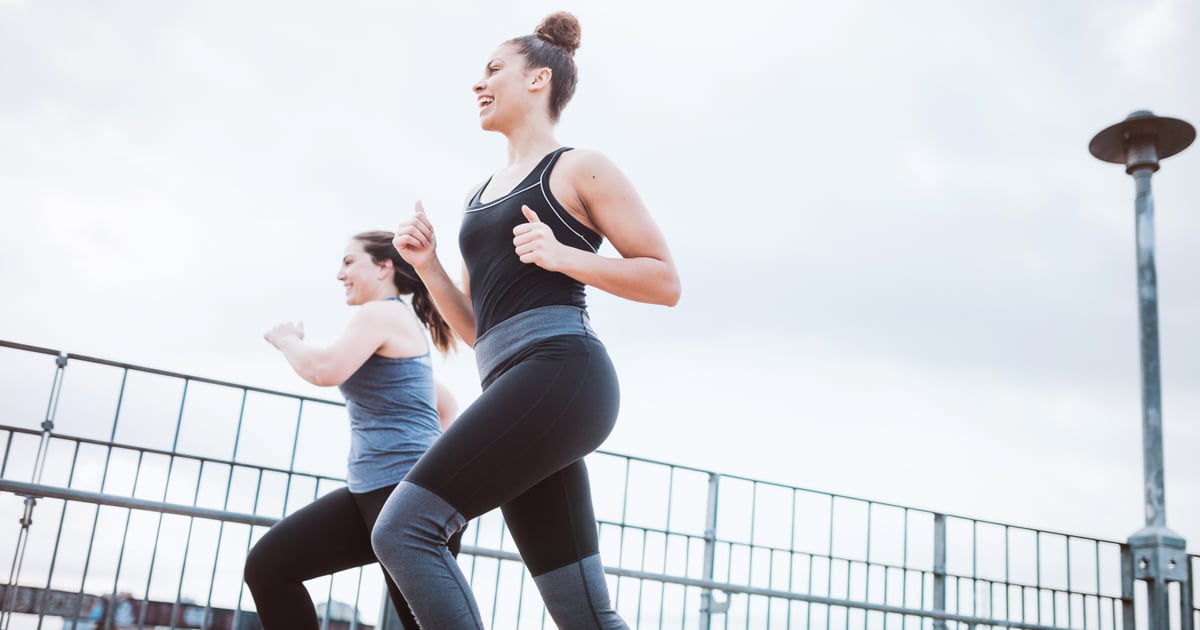
I always hear trainers say workouts like HIIT and exercises such as mountain climbers are good because “they get your heart rate up.” As a trainer myself, I understand why you should elevate your heart rate during exercise and the benefits of doing so, but I know the general population probably has no idea what trainers mean when they hear that statement.
Because of this, I asked Rondel King, MS, CSCS, an exercise physiologist at NYU Langone’s Sports Performance Center, to explain why you want to get your heart rate up during exercise and if you should be concerned with target heart rate zones when you exercise.
What Your Heart Rate Tells You
Before going any further, it’s important to understand the information your heart rate provides. Your heart rate tells you how many times your heart beats per minute, and this number will vary person to person and can change depending on your health. “[Your] heart rate is a direct indication of the amount of work that you’re doing and the intensity of the activity. So, it can be used to essentially gauge the intensity of your movements or your exercise program,” Rondel told POPSUGAR.
Having a high max heart rate during exercise means your heart can pump more blood through your body and you can do more work, Rondel added. Ultimately, “It gives you an idea of how much work your heart can actually do.” If you don’t have any pathological complications (physical diseases), “You can certainly aim for the highest heart rate” because the more work your heart can do, the better you will be as an athlete, Rondel explained.
Do Heart Rate Zones Matter?
The heart rate zone charts you see at the gym, classes that utilize heart rate zone tracking systems, and the max heart rate calculation (220 minus your age) will provide you with a general estimate of the intensity level you’re training at, but it isn’t a direct measurement of your max heart rate, according to Rondel. This is because everyone has a different aerobic threshold (a steady-state effort that can be sustained for a long period of time) and anaerobic threshold (quick bursts of energy performed at max effort for a short period of time).
In order to find out your max heart rate and aerobic and anerobic thresholds, Rondel said you have to do a test such as the VO2 max in a lab setting. This test measures your maximal oxygen consumption during intense exercise and is considered to be an indicator of cardiovascular fitness and aerobic endurance. Essentially, the more oxygen you can use during exercise, the more energy your body is able to produce to meet the demands of the exercise.
How Your Heart Rate Affects Fat Burn
Your heart rate tells you how hard you’re working during exercise, and those measurements can also let you know whether your body is burning more fat or carbohydrates. As a reminder, we all have different thresholds, but in general, when you’re resting and your heart rate is low, your body is primarily burning fat (also known as aerobic metabolism — the creation of energy utilizing oxygen), Rondel said. An example of this is walking on the StairMaster for 20 minutes or doing 30 minutes of steady-state cardio.
“As the intensity or workload get higher, you slowly transition from burning more fat to burning more carbohydrates (your body shifts from aerobic metabolism to anaerobic metabolism: the creation of energy in the absence of oxygen).” An example of this would be doing a 15-minute run followed by a 45-minute HIIT workout. Although your body will primarily burn more fat or carbohydrates based on the intensity of the exercise you’re doing, weight loss isn’t guaranteed if that’s what you’re after. If your goal is to lose weight, exercise can help, but you’ll also need to consider your genetics, nutrition, stress levels, and sleep habits for long-term changes.
Ultimately, your heart rate can help you optimize your workouts to meet your specific fitness goals and is a great indicator of how intense you’re performing during a workout. The next time you hear someone say an exercise or a workout is good because it will increase your heart rate and get your blood pumping, you’ll know exactly what they mean.
